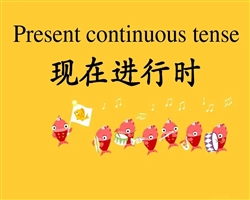主动语态变被动语态的易错点
主动语态变被动语态的易错点
■含有双宾语的主动句变被动句时,可分别将其中的一个宾语变为主语,另一个不动,但变间接宾语为主语的情况较多。
主动:Tom gave me a present on my birthday. 我生日那天汤姆送我一件礼物。www.34en.com
被动:I was given a present by Tom on my birthday.
A present was given to me yesterday.
注意:如果把直接宾语(指物)改为主语,则在间接宾语(指人)前加适当的介词。
1. 在下列动词后,通常在间接宾语前用介词to:bring, give, hand, lend, offer, pass, sell, show, take,通tell等。
2. 在下列动词后,一般在间接宾语前用介词for:build, buy, cook, cut, choose, do, fetch, find, fix, get, keep, make, order, paint, play, sing等。
主动:Mother made me a new skirt. 母亲给我做了件衬衣。
被动:A new skirt was made for me.
3. 由于某些动词与介词有习惯搭配,既不用to也不用for, 而用别的介词。如:
People all over the world know the Great Wall. 世界上的人都知道长城。
The Great Wall is known to people all over the world. (不用by短语)
4. 有时用间接宾语作主语讲不通或不习惯,必须用直接宾语作主语。如:
Tom wrote me a letter.
误:I was written a letter by Tom.
正:A letter was written to me by Tom.
类似的动词还有:return, send, pass, hand, sell, teach等。
■含复合宾语(宾语+宾补)的主动句改为被动句时,一般把主动句中的宾语改为主语,而宾语补足语保留在谓语动词后面成为主语补足语。如:
We always keep the classroom clean. 我们总是保持教室清洁。
The classroom is always kept clean. 教室总是保持清洁的。
They asked me to help them. 他们叫我帮助他们。
I was asked to help them. 我被他们叫去帮忙了。
We saw them playing football. 我们看到他们在踢足球。
They were seen playing football. 他们被人看见在踢足球。
注意:
1. 在see, watch, hear, notice, listen to, look at, make, feel等动词后作宾语补足语的动词不定式都不带to,但改成被动语态后要加上to。
We often hear her sing. 我们经常听到她唱歌。
She is often heard to sing. 经常有人听到她唱歌。
2. 如果宾语补足语是名词,变被动句时,不要误把宾语补足语的名词作主语。如:
We called him an ass. 我们叫他傻瓜。
误:As ass was called him.
正:He was called an ass.
■短语动词的被动语态
1. “动词+介词/副词”构成的短语动词,变成被动语态时,要把它们作为整体看待,介词或副词不可拆开或漏掉。如:
The patient is being operated on. 病人正在动手术。
His request was turned down. 他的要求遭到拒绝。
注:这类短语动词常见的还有agree to, ask for, laugh at, listen to, look after, think of, talk about, call on等。常用的由“及物动词+副词”构成的短语动词有bring about, carry out, find out, give up, hand in, make out, pass on, point out, put away, put on, put off, take off, think over, work out, turn out, sell out, use up look up (查询) (www.MT56.com)等。
2. “动词+副词+介词”构成的短语动词,变成变动语态时,要把它们作为一个整体看待。如:
The poor were looked down upon then. 那时穷人被人瞧不起。
He was looked up to by everyone他被人们所敬仰。
注:这类短语动词还有:get out of, look out of, get on with,get along with, catch up with, keep up with等。
3. “动词+名词+介词”构成的短语动动词,变被动语态时,既可将短语动词后的宾语作为被动句的主语,也可将短语动词中的名词作为被动句的主语。如:
You must pay attention to your pronunciation. 你必须注意你的发音。
Your pronunciation must be paid attention to.
Attention must be paid to your pronunciation.
注:这类短语动词常见的还有catch sight of, make use of, make fun of, make friends with, set fire to, take care of, take hold of, take part in, take notice of, keep an eye on等。
■当主动句的主语是nobody, no one等含有否定意义的复合不定代词时,被动句中将其变为anybody,作by的宾语,并将谓语动词变为否定的被动语态。如:
Nobody can lift this stone. 谁也拿不起这块石头。
误:The stone can be lifted by nobody.
正:The stone can not be lifted by anybody.(www.MT56.com)
■当否定句中的宾语是anything, anybody, anyone等不定代词时,在被动句中应将其分别变为nothing, nobody, no one作主语,并将谓语动词变为肯定的被动语态。如:
They haven’t done anything to make the river clean.
误:Anything hasn’t been done to make the river clean.
正:Nothing has been done to make the river clean.
■以who为主语开头的疑问句,变被动时,用by whom放在句首:
Who wrote this novel? 这部小说是谁写的?
误:Who was this novel written by?
正:By whom was this novel written?
■主动句中完成进行时态时,相应的被动句变为完成时态。如:
He has been using this dictionary for ten years. 这本词典他用了十年了。
This dictionary has been used for ten years.
- 关键字:
- 上一篇: 容易出错的被动语态时态
- 下一篇:主动表被动的常见情形
友友评论:
内容相关随机推荐:
暂无相关信息!
- 相关链接:
-
资源说明:
英语语法网英语语法网-时态语态-《主动语态变被动语态的易错点》
 。
。




